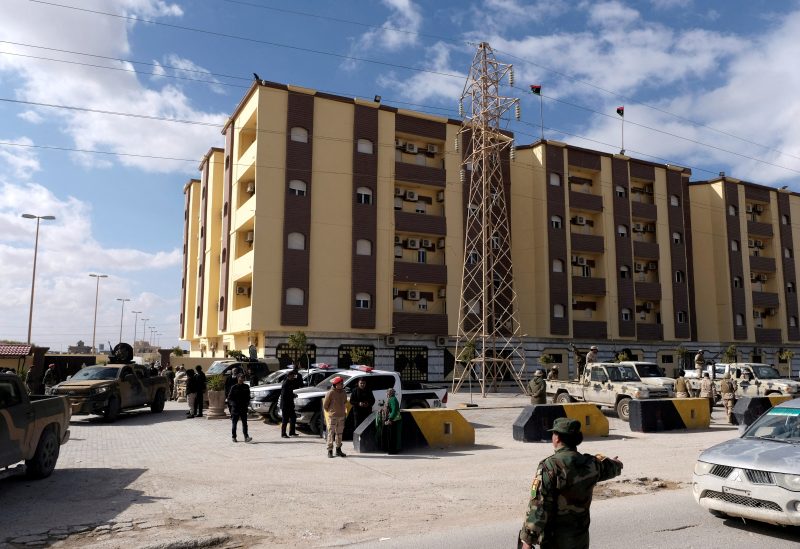
Security forces stand guard outside the parliament building, home of the House of Representatives, in Tobruk, Libya, February 10, 2022 REUTERS/Esam Omran Al-Fetori/File Photo
Abdoulaye Bathily, the U.N. envoy for Libya, stated on Saturday that national elections might take place by the end of the year if a clear road map and electoral legislation are put in place by June.
Since an election that was supposed to take place in December 2021 was called off because to disagreements about the eligibility of the main candidates, a political process to end the more than ten-year conflict in Libya has come to a standstill.
Bathily last month announced a new initiative to break the deadlock by creating a steering committee to enable the elections, seen as critical to any lasting peace.
On Saturday, he told a news conference in Tripoli that the two legislative bodies, the House of Representatives and the High State Council, had agreed to form a joint committee of six members each to draft electoral laws, adding: “There is no reason for any more delay.”
However, the two chambers have spent years negotiating about the political system without moving closer to elections that would in effect replace them.
The House of Representatives was elected in 2014, while the High State Council was formed as part of a 2015 political agreement and drawn from a parliament elected in 2012.
Libya’s interim government, put in place in early 2021 through a U.N.-backed peace plan, was only supposed to last until the election scheduled for December that year, and its legitimacy is now also disputed.
“Successive interim arrangements, endless transition governments, legislative bodies whose terms of office have expired are a source of instability,” Bathily said.
Libya has had little peace since a 2011 NATO-backed uprising ousted the autocrat Muammar Gaddafi. Since 2014, political control has been split between rival eastern and western factions, with the last major bout of conflict ending in 2020.